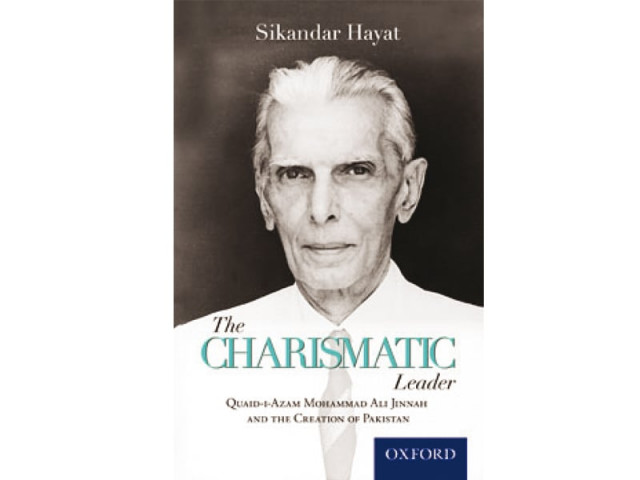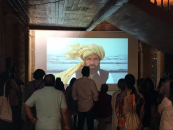Book review: A Charismatic Leader - Jinnah Revisited
Sikander Hayat skillfully addresses the nuances of Jinnah’s leadership in his latest book.

Book review: A Charismatic Leader - Jinnah Revisited
The general pattern of Indian history leading to Partition is rooted in an evolutionary framework of analysis of the constitutional debates. It typically draws on a relatively unbroken line of events as well as initiatives taken by the three protagonists — the British government in India, the Congress and the Muslim League — that seem to move to an inevitable endgame in the form of Partition. In contrast, the present book deals with certain deeply endemic crises that solve the grand riddle of social, cultural, political and constitutional life of Muslims in British India. The author elaborates on this theme by focusing on the ‘Muslim crisis’ spread over half a century, which provides the structural context for the emergence of Muslim nationalism. However, as electoral politics took root in India, there was a dire need for a shift in emphasis from ‘structure’ to ‘agency’. Muslim leaders at this point failed to consolidate their hold over the community and there was a dearth of leadership. Hayat makes a convincing argument about the nature and characteristic of Jinnah’s leadership beyond traditional explanations and shows how Jinnah’s role seems to be carved out by history itself when seen in the broad context of structure-agency dichotomy.
In the transition from the first to the second edition of his book on Jinnah, Hayat has expanded both theoretical and empirical findings of his research on the creator of Pakistan. Not only has he refocused his study on Jinnah’s charisma from the first edition but he has also consciously and conscientiously placed himself firmly within the discourse of Partition in general and Jinnah in particular.
In the second edition of his book, Hayat specifically seeks to address Jinnah’s new profile based on some historians’ portrayal of him — for example Jaswant Singh, Ajeet Javeed and Saleena Karim — as a secular person par excellence. The author revisits the controversy over Ayesha Jalal’s thesis about the Pakistan demand being a bargaining counter, from which she has distanced herself in recent writings. The author finds enough ground in Jalal and her critics’ positions to put aside this so-called ‘revisionist’ thesis. The new edition of the book explores the theme of nation-making with reference to some of the famous theorists of nationalism such as Ernest Gellner and Paul Brass, especially in the context of shaping an ethnic variety of nationalism based on Islam.
In the current edition, the author engages himself in a dialogue with more recent writers on the subject, agreeing or disagreeing with their arguments as the case may be. In the former case, he endorses the view about not mixing Partition as the finale of a long process of development of Muslim nationalism with communal violence that accompanied it, inasmuch as these were two separate phenomena. In the latter case, the author confronts a writer on the controversial role of the NWFP governor Olaf Caroe in such matters as the 1947 referendum, and later Pakistan’s entry into the Western military alliances. The author’s willingness to expand and update his findings in the light of newer insights on Partition and Jinnah is commendable. In the matter of production of the book, one cannot overemphasise the fact that this is a high quality publication worth reading for anyone interested in the history of the subcontinent.
Mohammad Waseem is a professor of political scienceat the Lahore University of Management Sciences.
Published in The Express Tribune, Sunday Magazine, September 28th, 2014.



















COMMENTS
Comments are moderated and generally will be posted if they are on-topic and not abusive.
For more information, please see our Comments FAQ